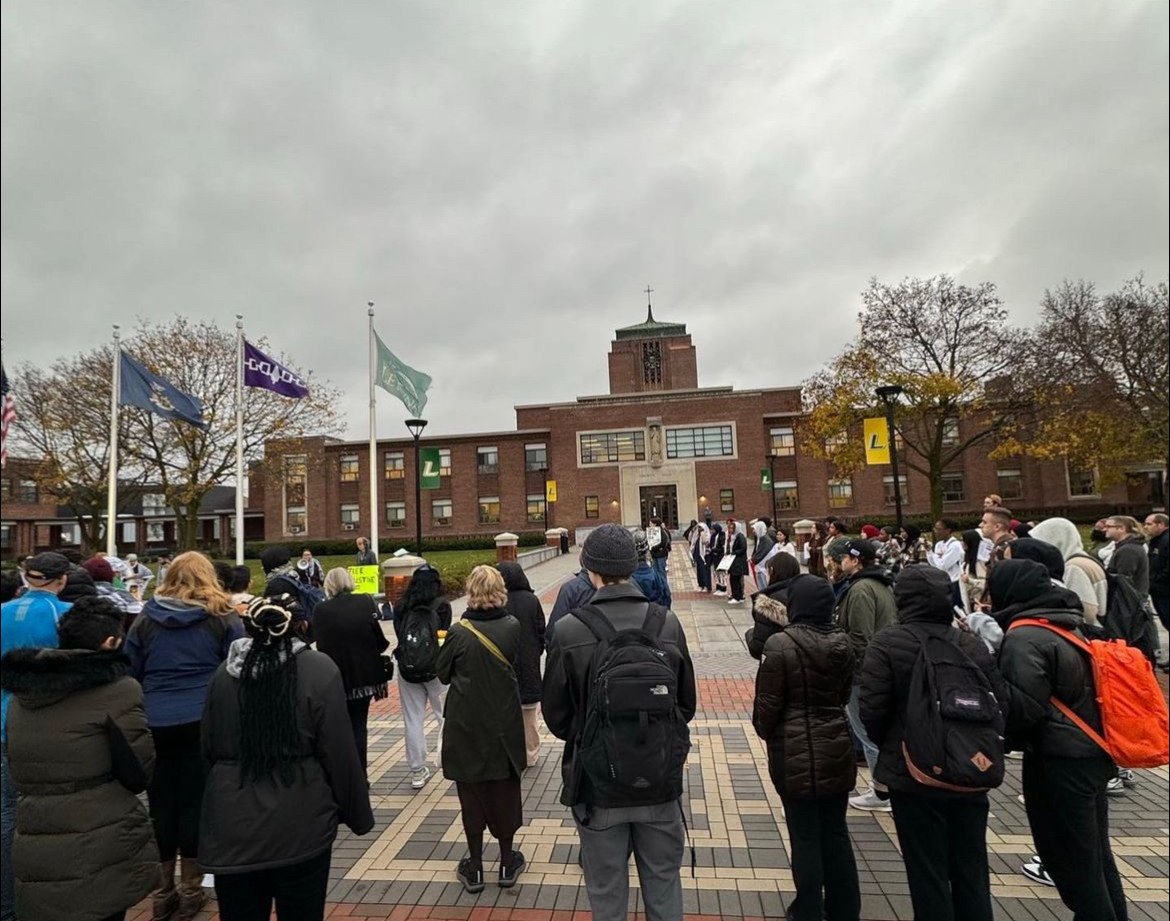Le Moyne’s Board of Trustees approved the construction of a new parking lot outside of Mitchell Hall during their February meeting. While the project has since been delayed due to permits and costs, eventually the gated lot will add 65 parking spaces to the Le Moyne campus. However, they will be designated to faculty and administration only.
We sent out a survey to commuter students to gather their thoughts on the belief that the Mitchell lot will open up spaces in the C and A lots. Fifty-six responded.
“I don’t think the faculty will use [the Mitchell lot],” Ryan McManmon said. “Give it to the commuters, we are an ever-growing population on the campus and we continuously draw the short straw. Here’s your parking spots, except everyone else on the campus can park in the same spots.”
On the other side of that argument is McKenzie Ponto, who says she’s “just happy that Le Moyne is expanding parking regardless of who it is for. There is nothing more frustrating than coming to school for an afternoon class and having to do four loops around the parking lots just to find a spot…”
Kaylee Card is in agreement. “I think that is an excellent plan…it would give commuters the spaces available to park and not have to worry about not finding a spot to park and run the risk of being late to class.”
We did not tell the surveyed students that we also asked a few of our professors which lots they park in and if they would use the Mitchell lot. Out of the nine we spoke to, only two were willing to park at Mitchell. It is unclear at this time if certain faculty will be asked to park at Mitchell or if it will be voluntary.
Hunter Davenport isn’t confident in the plan. “Mitchell Hall is one of the furthest buildings from the main academic buildings. Faculty aren’t going to park there, they’re going to keep parking close to their classrooms and offices…Students have been asking for a new commuter lot for a while now and this plan is just flat out tone deaf to that.”
Parking at Le Moyne has long been a contentious debate. Nearly 1,100 commuters make their daily drive to campus only to have to fight for parking in one of the 740 commuter-sanctioned spots, which are also used by faculty and residents despite the insistence that the latter population use their own designated parking.
Commuter students are growing increasingly frustrated, especially since in recent months, there has been an uptick in tickets being issued to commuters parking in faculty and residential lots due to the unavailability of commuter spaces.
“I invite you to walk around the existing commuter lots and while you do, make note of how many cars have commuter passes, let alone a parking pass at all,” Davenport urges. “I think what you’ll find is that most people don’t park where they’re ‘supposed to,’ they park where it’s most convenient for them. Why should students pay for parking passes when they’re not required and parking isn’t even guaranteed?”
Commuter parking passes cost $100, a fraction of the price of residential passes, which go for up to $500. However, commuters require parking spaces.They cannot attend class without finding a spot. Commuters have reported being late to class often, some upwards of twenty minutes late even after arriving on campus fifteen minutes early.
Should the Mitchell lot succeed in opening spaces for commuters, it still would not totally solve the problem of commuters feeling seen by the school. With the multitude of other inconveniences they face on the Le Moyne campus, one would think a new parking lot would be dedicated to commuters rather than faculty and administration.
“I believe that though this adds additional parking it only truly helps faculty and administrators, those who already feel the least impact of Le Moyne’s poor parking system,” Samuel Bailey states. “By giving faculty and administrators more exclusive parking, we further remove them from the problem and as such remove their incentive to help commuters better our parking situation. You have to ask yourself, why after all this time and after all these complaints has the parking problem not been alleviated for commuters?”
Another question to ask is why students and faculty weren’t initially consulted about which group would benefit more from the lot.
All in all, the survey produced a mixed bag of results, with some hopeful that the new lot will lessen parking tensions and others not expecting a drastic change.
“Ultimately, the goal should be to have parking options that reflect the total population of the college. If the college wishes to increase enrollment but does not do anything to adjust its parking, there will be obvious and glaring problems,” Evan Breitbeck says.
Only time will tell if the lot at Mitchell will help commuters. For now, parking remains an everyday battle.







